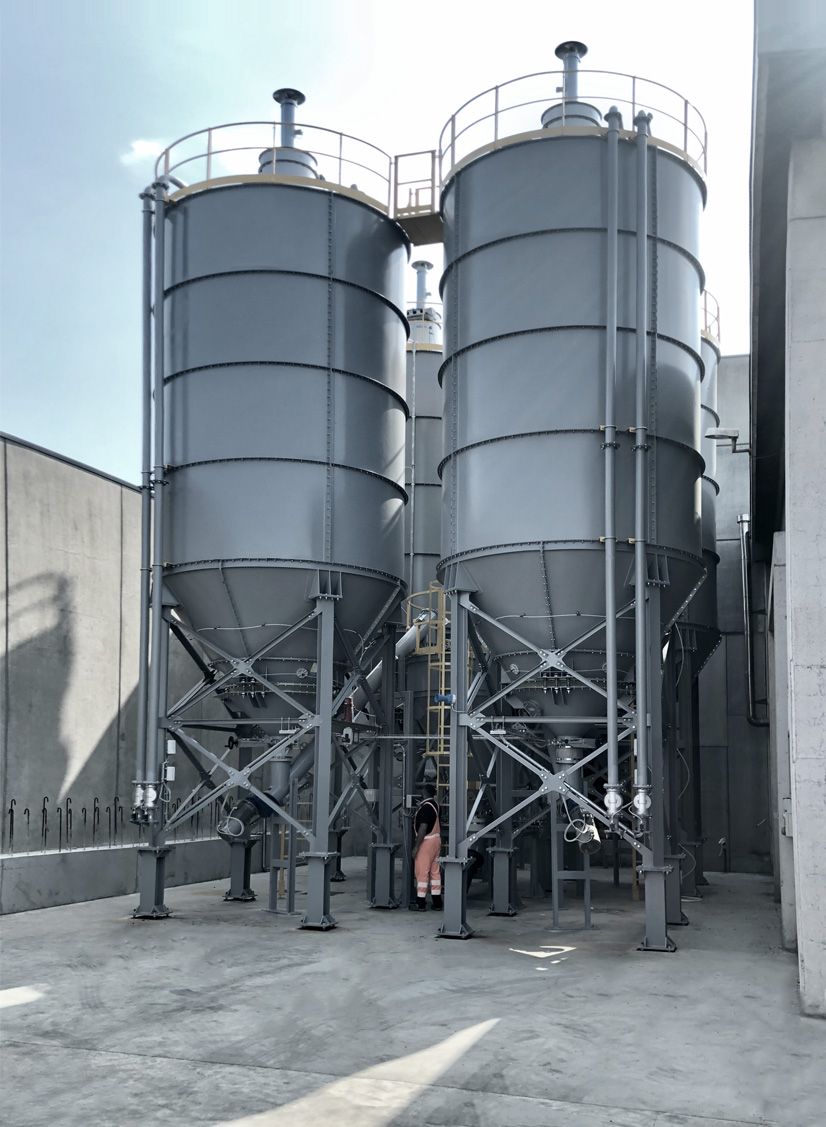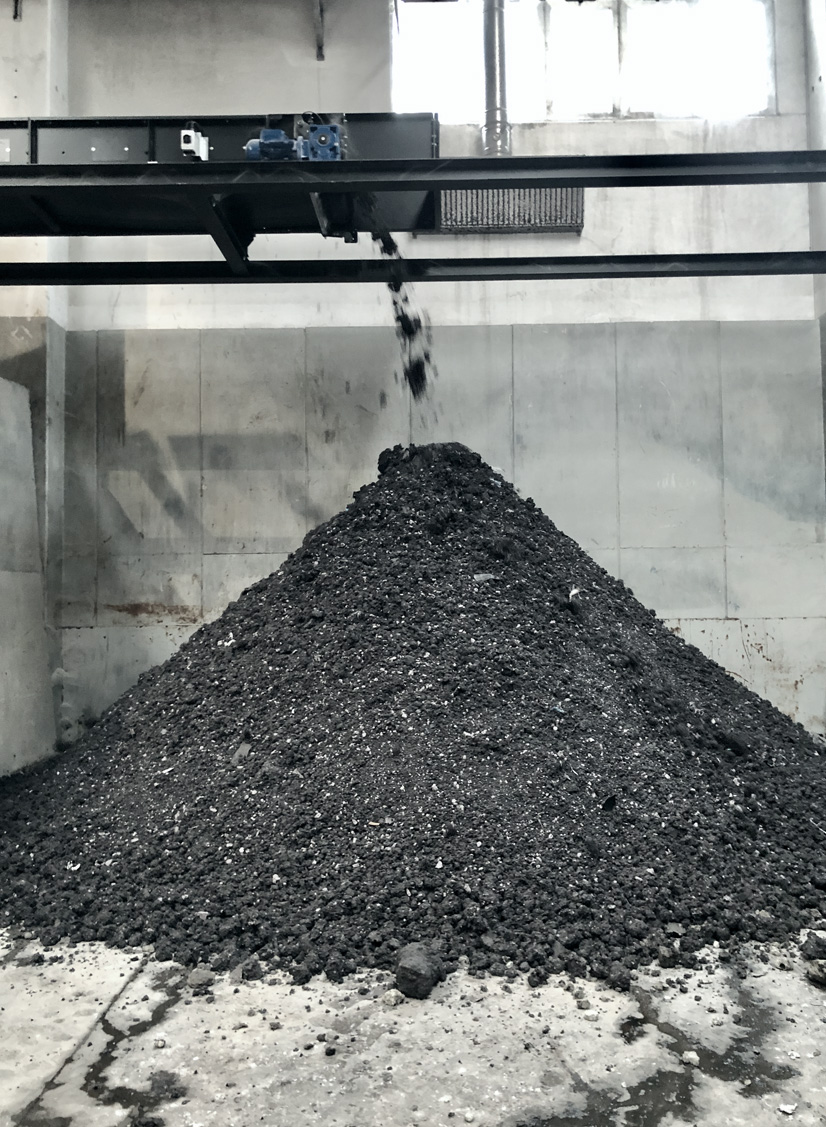The Dal Maso Group has a state-of-the-art facility where hazardous and non-hazardous waste is stabilised and immobilised/solidified.
The chemical-physical process to which the waste is subjected is conducted in accordance with the best available techniques and involves reducing and/or eliminating the release of contaminants into the eluate.
The aim of the treatment is to make the waste suitable for disposal in landfills, both by increasing its dry residue at 105 °C and by minimising the release of pollutants contained within.
Thanks to the use of binders, it is also possible to achieve an excellent level of affinity for the transformation of metal compounds into (insoluble) hydroxides, thus ensuring compliance with the limits set by disposal tests.


The inertisation process particularly applies to certain types of waste containing pollutants generated,
in most cases, by the following sectors:
sludge produced by the neutralisation of acid baths, clarifying washing water, etc.
solid residues from nitriding and carburising baths
smelting slag, dust from fume control
residue from primary sedimentation, sludge from purification systems
varnish sludge, screened residue and other sludge from the purification of waste water generated by leather/tanned-hide processing
sludge from purification of urban and industrial waste water
slags and floating sludge
material derived from the reclamation of contaminated land